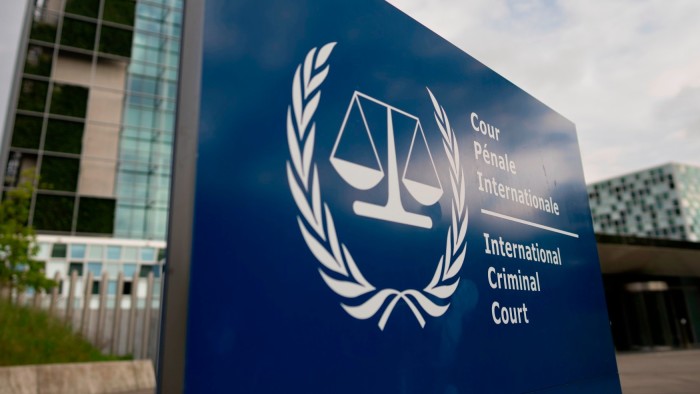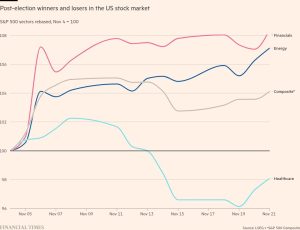The unravelling of the international legal order

Unlock the White House Watch newsletter for free
Your guide to what the 2024 US election means for Washington and the world
When the International Criminal Court issued an arrest warrant for Russia’s President Vladimir Putin for alleged war crimes in Ukraine, US President Joe Biden welcomed it as “justified”. When the court on Thursday issued a warrant for Israeli Prime Minister Benjamin Netanyahu — its first for a western-backed leader — the White House said it “fundamentally rejects” the ICC’s decision. The contrasting reactions to the two announcements were echoed in the Donald Trump camp.
The US has never joined the ICC, largely because of fears it might pursue American soldiers. But what to many — especially outside western democracies — will appear double standards from Washington will further undermine the international legal order the US helped to build, and of which it has been a principal beneficiary. That unravelling risks only worsening under an incoming Trump administration committed to an “America first” approach to the world.
The elaboration of international humanitarian law was a pillar of the postwar rules-based framework. The creation in the 1990s of tribunals for the former Yugoslavia and Rwanda, and later the ICC, as mechanisms to prosecute those accused of war crimes, helped to top out that framework — even if Russia, China and India, plus the US and Israel, stayed out of the ICC.
Applications by ICC prosecutors in May for arrest warrants for Israeli leaders, as well as three Hamas leaders, were a signal that the rules of war applied to elected leaders and their armies, not just autocrats or terrorist groups. They had the potential to burnish the standing of a court long criticised for mostly targeting African despots.
The ICC’s issue of arrest warrants this week for Netanyahu and his former defence minister Yoav Gallant, and the Hamas leader Mohammed Deif, has intensified allegations that the court is drawing moral equivalence between the two sides. Among Israelis still suffering from the trauma of the horrifying Hamas attacks of October 7 2023, it prompted rare unity in the politically polarised nation. Opponents and allies of Netanyahu alike condemned it as an assault on Israel’s right to defend itself.
In fact, the court accepts Israel’s right of self-defence, but not the way its government has conducted the war against Hamas. As much as the devastating Israeli bombardment of Gaza, its focus is on the alleged collective punishment of the strip’s besieged civilian population, and restrictions of vital aid in violation of international law.
The ICC warrants are highly problematic for the western alliance. They may drive a wedge between the US, which has condemned them, and some European countries that say the court should be respected. Trump allies have suggested they will again impose sanctions on the ICC; his first administration did so over an investigation into alleged war crimes in Afghanistan.
Bodies such as the ICC, reliant on international co-operation, were always set to struggle in an era of a belligerent Russia and an assertive China. But many developing-world leaders will see the western divisions over this week’s warrants as a sign of hypocrisy and a readiness to pick and choose how to apply international law. The US was already considered complicit by many in the global south for unyielding support for Netanyahu’s far-right government.
This will be all the more damaging as it follows a broader erosion of the courts and domestic rule of law by populist leaders in a series of western democracies — which has now spread to the US. A convicted felon who sought to use the law to overturn the result of the last presidential election has been voted back into the White House. The Trump team sees international institutions and treaties as encumbrances to America’s freedom to act. But a global order based once again on money and might in the long run not serve the interests of the US, or its allies.
#unravelling #international #legal #order






